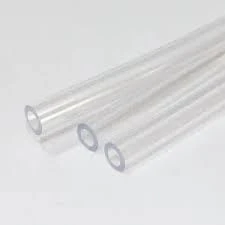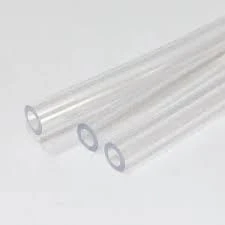Feb . 18, 2025 00:03 Back to list
β (Beta) PPH sheet
PVC pipes have revolutionized garden irrigation systems, providing an efficient and affordable solution for gardeners striving for an optimal balance between water conservation and plant health. Known for their durability and versatility, PVC pipes offer an array of benefits, making them a preferred choice for both amateur and professional gardeners. This article delves into the practical application of PVC piping in garden irrigation systems, offering insights into its benefits, installation tips, and maintenance routines to assure a thriving garden.
Expertise in choosing the right PVC pipe diameter is crucial for efficient garden irrigation. Small diameter pipes, around half an inch, may be ideal for small gardens and flower beds due to their adequate water flow. In contrast, larger areas with a variety of plants may benefit from three-quarter to one-inch pipes to ensure consistent and sufficient water distribution across the garden. After installation, proper maintenance of your PVC irrigation system is vital to sustain its effectiveness. Regular inspection for leaks or blockages can preserve water pressure and prevent over-watering or drought stress on your plants. Also, during the colder months, it's advisable to drain the system to avoid pipe damage from freezing temperatures. Insulating exposed pipes can offer additional protection and extend the lifespan of your irrigation network. Gardeners continuously seek reliable and sustainable solutions. By integrating PVC pipes into your garden irrigation system, you not only enhance plant health but also promote water conservation, fostering an environmentally friendly approach to gardening. These pipes, backed by their resilience and cost-efficiency, represent a smart investment, ensuring your garden flourishes with minimal intervention. Through strategic installation and diligent maintenance, PVC pipe irrigation systems can transform your gardening experience, fostering lush landscapes with practical and economical watering solutions.


Expertise in choosing the right PVC pipe diameter is crucial for efficient garden irrigation. Small diameter pipes, around half an inch, may be ideal for small gardens and flower beds due to their adequate water flow. In contrast, larger areas with a variety of plants may benefit from three-quarter to one-inch pipes to ensure consistent and sufficient water distribution across the garden. After installation, proper maintenance of your PVC irrigation system is vital to sustain its effectiveness. Regular inspection for leaks or blockages can preserve water pressure and prevent over-watering or drought stress on your plants. Also, during the colder months, it's advisable to drain the system to avoid pipe damage from freezing temperatures. Insulating exposed pipes can offer additional protection and extend the lifespan of your irrigation network. Gardeners continuously seek reliable and sustainable solutions. By integrating PVC pipes into your garden irrigation system, you not only enhance plant health but also promote water conservation, fostering an environmentally friendly approach to gardening. These pipes, backed by their resilience and cost-efficiency, represent a smart investment, ensuring your garden flourishes with minimal intervention. Through strategic installation and diligent maintenance, PVC pipe irrigation systems can transform your gardening experience, fostering lush landscapes with practical and economical watering solutions.
Share:
Latest news
-
High-Quality PVC PPR Pipes and Fittings Durable ERA PPR Solutions
NewsJun.10,2025
-
High-Quality Large HDPE Sheets & Large Diameter PVC Pipe Durable Large PVC Pipe Supplier
NewsJun.10,2025
-
High Density Polyethylene Cutting Board - Durable & Food Safe
NewsJun.09,2025
-
3 Inch PVC Pipe for Durable Irrigation Affordable & Reliable
NewsJun.09,2025
-
Premium PPR Plastic Water Pipe Fittings - Durable & Leak-Free
NewsJun.09,2025
-
Durable PVC Water Pipe for Reliable Supply Affordable & Easy Install
NewsJun.09,2025

